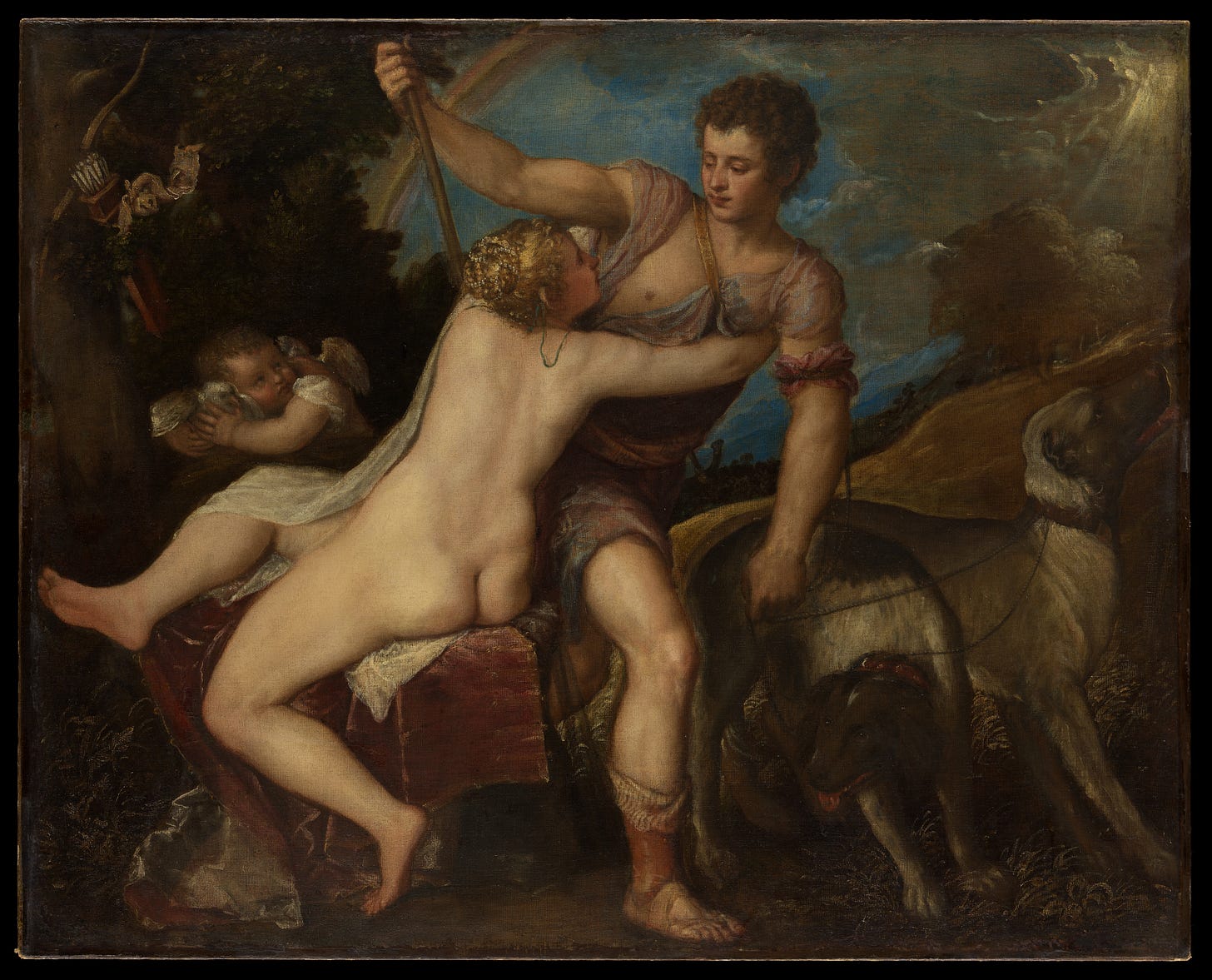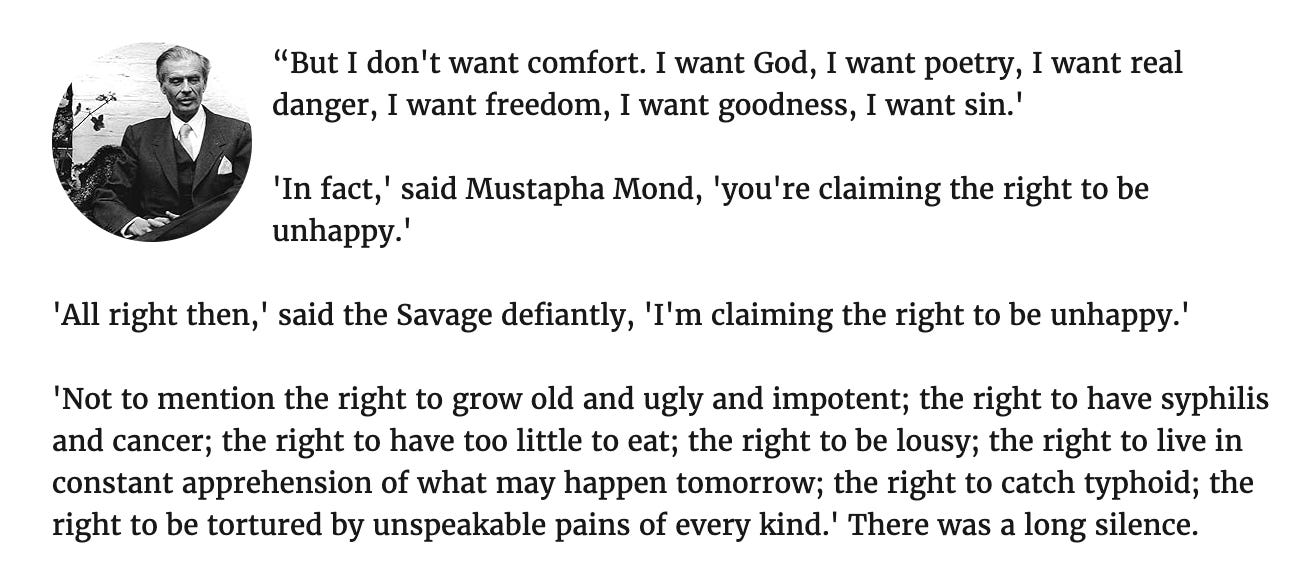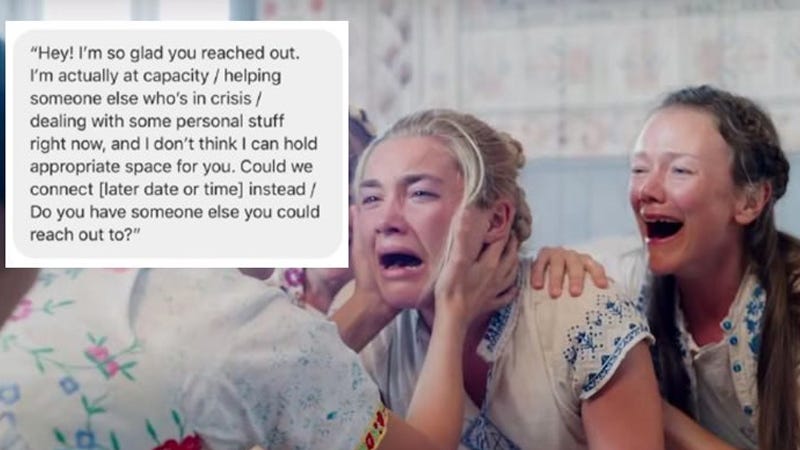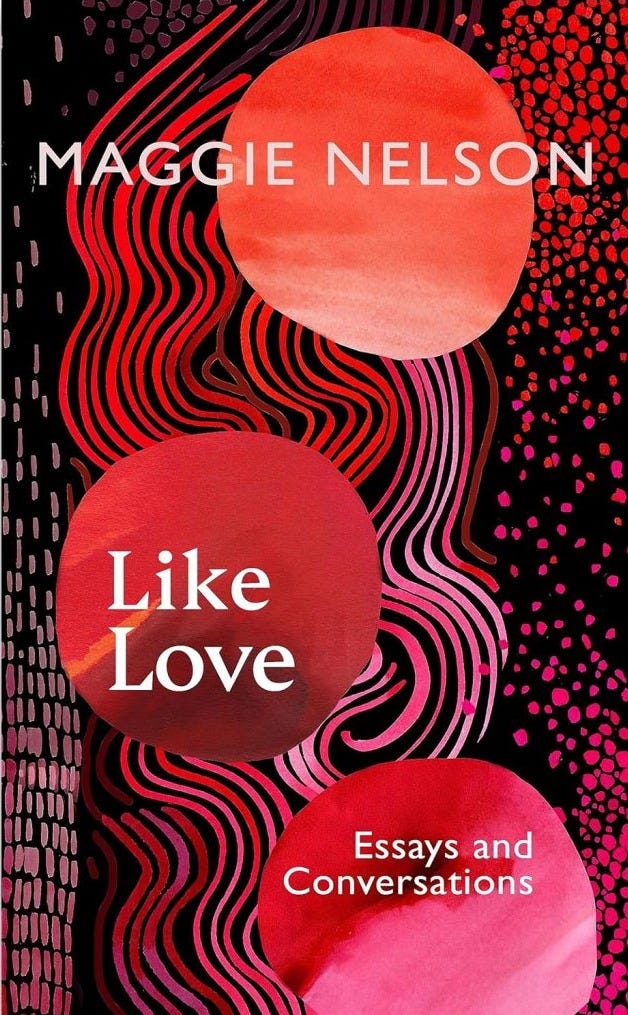
A short passage from Maggie Nelson’s essay collection Like Love held my attention for days. Quoting Hilton Als’s nonfiction book, White Girls, she writes:
“Every mouth needs filling: with something wet or dry, like love, or unfamiliar and savory, like love.”
I could have stopped at this line and been satisfied. I could have closed the book here and spent the rest of the day thinking about that one sentence and what it could mean, what it means personally to me, and what it may mean to Hilton Als.
Nelson couldn’t stop thinking about the sentence either. She continued:
I think about it a lot because I don’t quite understand it. Does that mean that love is an example of something that could fill a mouth, or does he mean that something ‘like love’ could do the trick? What is something ‘like love’ but not love? Would such a thing be a cruel - perhaps the cruelest - of substitutes? Or can something that’s like love, but not love, offer its own form of sustenance? How would one know the difference?
How often does a commitment to love shapeshift into a commitment to pain or suffering? Is this masochism or simply a commitment to being alive? A commitment to feeling? A commitment to poetics?
I expect to experience a certain level of hurt because that is just the emotional terrain of being alive, and I don’t believe we can experience a feeling of love without at some point experiencing ugliness, cruelty, and other negative states.
No harm in trying?
Of course, we don’t need any more articles asserting that dating is messy and difficult. I was/am(?) in a ‘messy’ situation with someone I know it will not work with, but I still haven’t fully let go.
We see each other very rarely, but when we do, I feel consumed, a child-like elation, but always aching for more. It is not lost on me that this could be easily written off as a ‘trauma bond’, but humor me while I work through my feelings rather than pathologize them (or intellectualize rather than feel them lol).
I am always longing
One evening at sunset, I sat with this man on an empty beach in Malibu. We watched music videos on his phone as the sky changed color, and I tried to hold on to each moment, knowing it was fleeting. I closed my eyes to take in the peace and presence I felt. I was sitting on the sand wrapped in a blanket and he stood above me and as I watched the ocean behind him, he said, ‘I just got deja vu, we’ve been here before.’ I smiled to myself because I also felt like I had been here with him before.
All I could hear was the waves, a kind of silence where every sound of nature is isolated. While living in a big city, you don’t always notice the buzz of cars or other people talking and existing around you, but the silence on the beach that night gave way to a sense of expansiveness and stillness I haven’t felt for weeks.
I felt a feeling of safety that I knew was impermanent, as I probably wouldn’t hear from him for days, maybe weeks after tonight.
Inconsistency is not cohesive with safety, I know this logically. But that doesn’t erase the way this dynamic feels for me in the moment. If I thought too deeply, I would hear a whispering voice reminding me that this is not something secure or sustainable.
The scene had all of the ingredients of being romantic and I wish it would be, but instead it is verging on harmful; it is like love but also the farthest thing from it.
The limits of attachment style
I’ve seen too many infographics about childhood trauma and healing, algorithmically targeted at me, to be oblivious to the possibility that these feelings of joy and comfort I feel with a person who doesn’t truly want to be with me are inseparable from my attachment style and desire to prove my worth. At the same time, I have issues with attachment style and the rise of therapy speak as the main way we interact and engage with each other.
Yes, these relationships are painful. But love has always been painful!!! So much great art exists exactly because love is painful. Idk if its masochistic and based in self-hate that I would prefer to have this one idyllic romantic fairytale day and then not hear from this man again, than just not experience that feeling of love at all… EVEN if this feeling is in fact, not love, but something like love… My point, echoing Als’ words, is that what feels like love can also be its opposite, and we can be sustained by things that aren’t entirely good for us. For me, shame or denying the joy in painful situations, makes me feel like I am being stripped of the experience of emotional depth that is, dare I say it, the point of being alive.
I think a lot of the time, therapy speak pathologizes ‘normal’ behavior while creating a category of the ideal evolved, developed, psychologically healthy functioning citizen. Ayoto speaks to this in his essay Attachment Theory is White Supremacy in a Lab Coat, uncovering the colonial roots of attachment theory, originating from white, imperialist frameworks that pathologize non-Western caregiving practices.
He links these psychological frameworks to broader structures of imperialism, racial capitalism, and systemic violence, showing how attachment categories serve to pathologize the survival strategies of oppressed communities. Ayoto calls for a decolonial model of relationality, that centers historical accountability, collective care, and resistance to dominant structures of control.
Lowkey I’m still making sense of a lot of his arguments, but it helps to know I’m not alone in my issues with the rise in popularity of attachment style narratives and online content.
I am also not suggesting we remain in situations that are causing us harm. What I have been feeling is a disconnection from what my friends tell me (this is not good, leave this man alone) and what attachment theory tells me (this is not good, leave this man alone) and what I experience (an intimacy and feeling of presence that I experience rarely with other people). That doesn’t mean this person is the only person that can give me this, it just means it is something different, and self-love is also about self-trust, which is also about honoring your own feelings and experiences as real and true.
Feeling our way through
In Like Love, Nelson continues:
How can the attention one pays to art be an act of love, or something like it, if and when the love object (words, sounds, paint, pixels) cannot love you back?
I like this statement a lot, because:
It runs true for our attachment to other people too, how can we love someone who can’t love us back? In the sense of keeping love as your guiding direction, despite someone else’s limits in loving you back.
It reorients me back to art as something more fulfilling and more stable, as a vessel to put this love and these feelings, even if the words or sounds or paint doesn’t love you back. Or maybe, in providing a vessel, they are loving you back?
In another conversation with this could-have-been lover, he told me he didn’t want to get close to anyone because people didnt’t really want to love, they were selfish and inherently untrustworthy.
Armed with a hopeful conscience formed from years of reading bell hooks and the fortune of many rewarding soul-level friendships that convince me that love is in-fact, real, I tried to convince him otherwise.
I told him I intentionally live my life with a conscious commitment to loving - I need to nurture this orientation, otherwise I would crumble, collapse with the weight of all the catastrophe and pain around us in the world.
But this orientation is not solely about the pursuit of romantic love, its about seeking love and connection in all things: a painting, a novel, a sentence scrawled on the back of a bathroom cubicle door which I will read as a love letter, a song, a sunset, my job, a yoga flow, a conversation with a stranger. I have a natural leaning toward heartbreak, so I need to be intentional about seeking out joy.
I’m not sure I’ve arrived at a fully coherent argument in this essay, but that is also the point of writing and feeling and working out. To summarize my thoughts:
I have a problem with attachment style language/therapy speak being used to a) shut down people’s multifaceted/complex/nuanced/and REAL experiences in favor of forcing people to present as a cleaner, ‘healthier’ version of themselves.
Sometimes we still feel love in situations that are harmful for us, and there needs to be more nuanced conversations on how to hold and honor those feelings, rather than putting it down to a ‘trauma bond’ or love that stems from self-hate and a need for validation. Less narratives around ‘strong women walking away because they know their worth.’
I am seeking new spaces to put all of these feelings, without shaming or silencing those feelings as negative or unhealthy?
This passage in Like Love, this interaction between Als (writer and theatre critic) and Nelson (writer and poet) feels so affirming to me as I have been feeling and thinking more about art as a kind of savior; I feel myself moving closer towards an unrestricted creativity reminiscent of that in childhood, but I’m also thinking about art as a place to put all of my huge feelings ~ as a life partner, in the truest sense.







